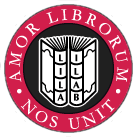Author: Anon. [Lowndes, William:]
Title: A Report Containing an Essay for the Amendment of the Silver Coins.
Publication: London: printed by Charles Bill, and the Executrix of Thomas Newcomb, deceas'd; Printers to the King 1695.
Description: First edition. 8vo., pp. 159, [i]. Woodcut initials. Slight dampstain along bottom margin occasionally affecting (though not obscuring) text, title-page a little grubby but otherwise only occasional light spots and smudges. Modern tan half calf, red morocco gilt title label to spine, marbled boards, endpapers renewed. A very good copy in a sound modern binding.
The Essay is divided into five distinct points: 'First, Concerning the Standard of the Gold and Silver Coins, and the Establishment of a Just and Reasonable Foot for the Course of the same'; 'Second, Concerning the Present State and Condition of the Gold and Silver Coins'; 'Third, Whether it be or be not Absolutely necessary at this Time to Re-establish the same'; 'Fourth, The Proposing of Means that must be Obtained, and the Proper Methods to be used in and for the Amendment of the Silver Moneys'; 'Fifth, To Consider what must Supply the Commerce, Pay Taxes &c. Whilst the Clipt Money is under its New Fabrication.' (pp.11-13) Lowndes (1652-1724) took office as secretary of the Treasury on 24th April 1695 in the midst of a worsening coinage crisis which the government was already making efforts to resolve. 'The practice of 'clipping' hammered silver coin had reached the point where it was seriously affecting the Treasury's ability to pay its way in the war with France, and in late 1694 confidence in the silver coinage weakened dramatically. A complete reminting of the coinage was now imperative, but the problem facing a House of Commons committee early in 1695 was whether there should be a temporary devaluation in order to stabilize the currency while the old money was reminted, a primary concern being to offset the inevitable loss in the value of tax receipts.' (ODNB) As Lowndes and the philosopher John Locke published opposing views on the subject (Lowndes in favour of devaluation and Locke against) the episode came to be referred to by historians as 'the Locke-Lowndes controversy'. However more recent studies have suggested that the views published here under Lowndes name on behalf of the Treasury were not actually his own. 'In a written report to the Treasury board in January 1695 Lowndes actually ruled out any suggestion of devaluation. While modestly conceding a limited grasp of the complexities behind the issue, he envisaged an immediate loss of some ?150,000 in revenue, which would have to be met by a 'public tax', and a worrying increase in the cost of England's military payments abroad.' (Ibid). The Treasury board asked Lowndes to produce a detailed recoinage scheme but, 'since majority opinion on the board favoured devaluation it would appear that Lowndes was instructed to follow the scheme already proposed by the Commons. By mid-September his 'book', A Report Containing an Essay for the Amendment of the Silver Coins, was in Treasury hands. It embodied the Commons committee's resolutions and was fleshed out with much historical detail, but owing to the rapid increase in the market price of silver a devaluation rate of 20 per cent would now be necessary. William III and his ministers acknowledged Lowndes's ingenuity and scholarship but, disagreeing with the Treasury board, saw greater virtue in Locke's arguments for a recoinage at the old standard. Thus it was largely to assist the ministry's own scheme for recoinage in parliament that Lowndes's Report was subsequently published in November 1695, followed by Locke's Further Considerations Concerning Raising the Value of Money. While paying tribute to Lowndes's erudition, Locke was quick to point out that some of his arguments tended in fact to condemn devaluation of any kind. Moreover, the encouragement which Lowndes gave to Locke and other critics to publish their rebuttals of his Report would likewise suggest that Lowndes had never personally favoured devaluation. In January 1696 an act was passed for a recoinage at the existing standard.' (Ibid.)
Bibliography: ESTC R39081; Wing (2nd ed.) L3323
Reference Number: [52379]
Price: £350
enquire





